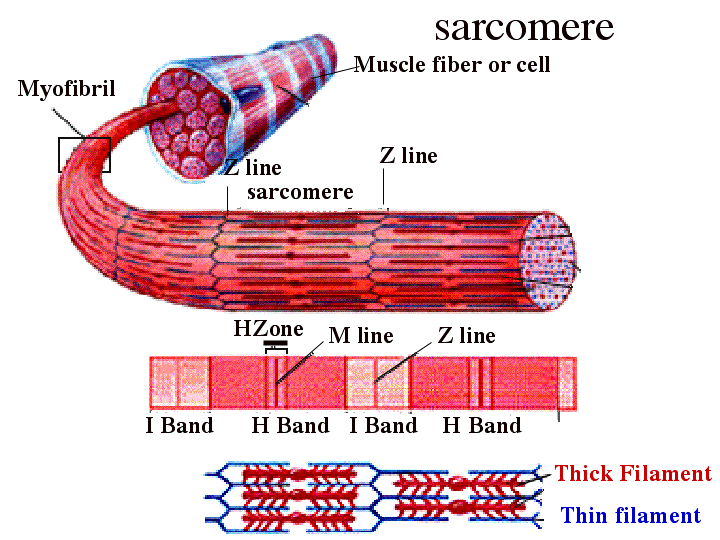Every athlete who trains for competition in sports that require endurance learns sooner or later that after exercising long and hard, you feel sleepy and need to go to sleep to recover. Older people may need even more sleep after intense exercise than younger people. If you don’t get lots of extra sleep when you do prolonged intense exercise, you don’t recover as quickly and are at increased risk for injuring yourself.
Nobody really knows why prolonged intense exercise makes a person sleep longer and deeper. In fact, we don’t even know whether sleep is necessary primarily for healing of your brain or your muscles or both (Front Physiol, 2014 Feb 3;5:24). In my opinion, it is most likely that you sleep longer and deeper to help damaged muscles heal from exercise.
Muscle Healing for Muscle Strength
The soreness and burning you feel during prolonged intense exercise is a sign that muscles are being damaged. A muscle is made up of thousands of muscle fibers like a rope is made of many strands. Each muscle fiber consists of a series of blocks called sarcomeres that fit up against each other end-to-end, at a junction called the Z-line. The soreness that you feel with prolonged endurance exercise is caused by damage directly to the Z-line. When this happens, the muscle can no longer contract with as much force. The muscle gets stronger when you cause damage at the Z-lines and then allow the damage to heal.
Damaged muscles start healing by a process called inflammation that turns on your immunity, and muscles heal faster by resting. The best way to rest your muscles is to sleep. Damaged muscles release two cytokines, called interleukin 6 and tumor necrosis factor alpha, that make you feel sleepy and prolong the time that you normally sleep. During sleep, your brain produces large amounts of growth hormone that stimulates muscle and bone growth and repair.
How Athletes Use Sleep for Recovery
The average college athlete gets 6.5–7.2 hours of sleep each night (J. Sci. Med. Sport, 2014;18). Increasing their sleep duration to eight or more hours per night improves performance in many different sports (Sleep, 2011 Jul 1; 34(7): 943–950).
Athletes who have jobs that require manual labor cannot compete at their best in endurance sports. Today all top endurance athletes either have no other job or work in jobs that allow them to sit all day long. Just standing or walking can delay muscle recovery from hard training. When I was training for marathons I had frequent injuries, probably because my medical practice kept me walking from room to room to treat patients when I should have been lying in bed to allow my muscles to recover.
Tour de France cyclists race for many hours day after day. They all know that the first thing to do after finishing a stage is to eat and drink copious amounts of foods and fluids to supply them with the nutrients necessary to help their muscles heal from the tremendous abuse. Then they lie down and try to sleep as much as they can before their next race on the next day.
Vigorous Exercise Helps Insomniacs
Several studies show that four to 24 weeks of regular prolonged exercise helps insomniacs fall asleep more quickly (Sleep Med, 2011;12(10):1018-27 and 2010;11(9):934-40).
What This Means for You
You cannot reach your full potential in endurance sports unless you are able to sleep long hours and do not have a job that requires you to move about much of the day. Endurance training requires spending lots of time sleeping and resting your muscles. Nobody really knows how or why prolonged exercise makes you tired, but it appears that the older you are, the more sleep you need to recover from the muscle damage of vigorous exercise.
Checked 12/14/16


